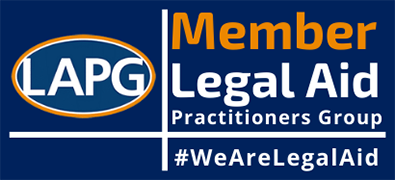
As family lawyers we have seen an increase in clients sharing digital domestic abuse, highlighting how abuse doesn’t always happen in person anymore. Unfortunately, perpetrators of domestic abuse have found ways to exploit technology to further control. In this blog post domestic abuse trainee family solicitor Victoria Power shares her thoughts on the legal steps you can take to prevent the abuse.
Digital Abuse. It’s Real and Growing
Unfortunately, perpetrators of domestic abuse are finding new ways to exploit technology to continue the abuse or sense of control.
Things like harassment through messaging platforms, revenge porn, identity theft, and covert access to accounts are all now being recognised as forms of abuse. Laws are catching up too, with coercive control via technology increasingly written into domestic abuse legislation.
Tech-Savvy Court Orders
Protective orders are no longer limited to physical contact. They can now include digital behaviour, such as:
- Preventing impersonation on social media
- Banning spyware or GPS tracking
- Blocking harassment through fake accounts or messaging apps
We’re also seeing more cases where ex-partners use technology to stay involved after separation. That might mean logging into shared accounts, controlling smart-home systems, or claiming they’re just “keeping an eye on the property.” For the person on the receiving end, though, this is often experienced as surveillance and control. However it’s framed, it can still be abusive and the courts are starting to treat it that way.
Co-parenting and the digital space
While technology can help keep separated parents in touch with their children and shared digital calendars can help keep everyone in the loop. In some cases technology can be the source of a disagreement. Some disputes now involve one parent monitoring a child’s phone activity, disagreements over posting children’s photos online, or manipulating communication through apps. These actions may seem small, but they can turn into tools of control.
Digital evidence matters
Keeping hold of texts, screenshots, and device logs can be incredibly important. They can be used as evidence in court. Judges are looking at on digital trails to understand what’s really happening. The key is to collect evidence safely, with attention to privacy and authenticity, so it stands up if needed.
Many professionals in the family courts are still learning how digital abuse shows up in people’s lives. While progress is being made, training and updated procedures are still needed to make sure survivors aren’t left unprotected just because abuse doesn’t look “traditional.”
Practical Digital Safety Steps
The Metropolitan Police offer useful tips for protecting yourself online. A few simple actions include:
- Change Wi-Fi passwords regularly, especially if they’re still on default settings.
- Use a VPN on public Wi-Fi to keep your browsing private.
- Clear your browser history if you’re worried about someone checking what you’ve been looking at.
They also recommend trusted services such as Cyber Aware, the National Cyber Security Centre, Refuge, and the Revenge Porn Helpline. These organisations can provide practical and emotional support.
Technology is part of daily life. It connects us but it can also be misused. Survivors of domestic abuse need digital safety plans alongside legal ones, and the legal system must keep pace with how abuse plays out online.
Seek legal advice for digital domestic abuse
If you’re worried about digital abuse, here are some of things you could take:
- Save and securely store evidence like messages, screenshots, and metadata.
- Include clear digital boundaries in co-parenting agreements.
- Update passwords, check permissions, and review devices regularly.
- Seek advice from a lawyer experienced in domestic abuse cases to apply for a protection order that specifically covers digital contact.
Digital abuse can feel overwhelming, but you don’t have to face it alone. Legal protections are evolving, and help is available. If you’re affected, reaching out for specialist advice is an important first step toward reclaiming your safety and control.
Need some advice? Get in touch today
"*" indicates required fields
The information submitted here is used and stored for the purpose of replying to the enquiry. For more information on how we process data please visit our Privacy Policy.










